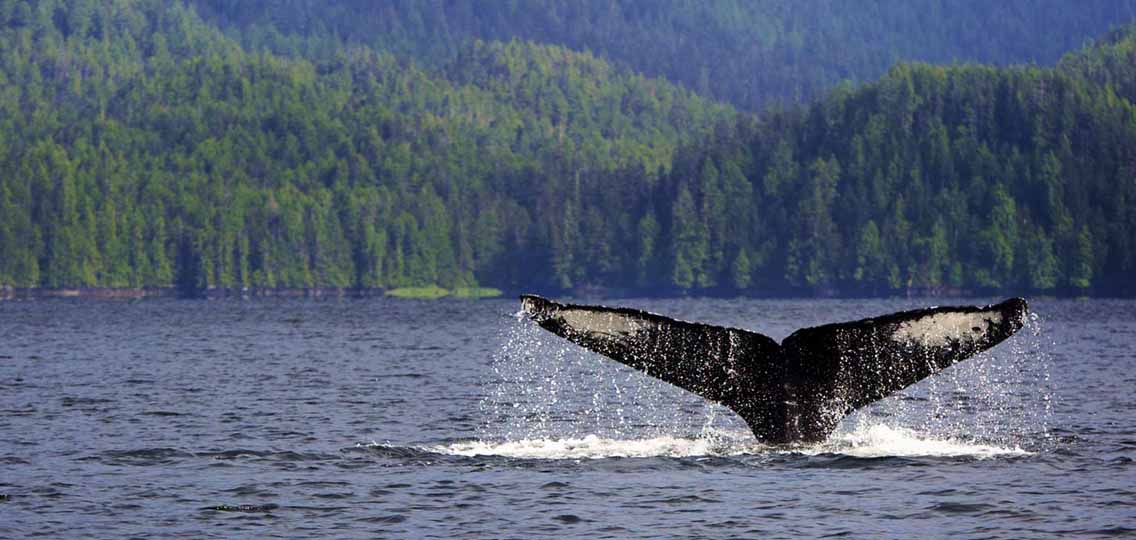VANCOUVER — Environmental groups have launched a lawsuit to block Cabinet approval of the proposed Northern Gateway pipeline. The Joint Review Panel’s (JRP) final report, the groups say, is based on insufficient evidence and does not satisfy the environmental assessment process.
Ecojustice lawyers, representing ForestEthics Advocacy, Living Oceans Society and Raincoast Conservation Foundation, filed the lawsuit today at the Federal Court level. The groups, participants in Northern Gateway’s 18-month review hearing process, seek a court order to prevent Cabinet from relying on the flawed JRP report to approve the proposed pipeline.
“The JRP did not have enough evidence to support its conclusion that the Northern Gateway pipeline would not have significant adverse effects on certain aspects of the environment,” said Karen Campbell, Ecojustice staff lawyer. “The panel made its recommendation despite known gaps in the evidence, particularly missing information about the risk of geohazards along the pipeline route and what happens to diluted bitumen when it is spilled in the marine environment.”
For example, earlier this week a federal report confirmed that diluted bitumen — the substance tankers would carry along the British Columbia coast — sinks in ocean-like conditions, suggesting that a potential spill would be even more difficult to clean up and have serious environmental impacts.
“We have no choice but to go to court and challenge the JRP’s final report,” said Karen Wristen, executive director of Living Oceans Society. “The panel’s recommendation was made without considering important evidence that highlights the threat Northern Gateway poses to the B.C. coast.”
The panel also failed to meet legal requirements under sec. 79(2) of the Species at Risk Act when it decided to not consider the final recovery strategy for humpback whales, and failed to identify mitigation measures that would reduce the impacts on caribou as required by the Act.
The humpback whale recovery strategy identifies toxic spills and vessel traffic as two threats to the iconic species’ survival and recovery — all relevant information that should have been considered during the review hearings.
“The proposed tanker route travels directly through humpback whale critical habitat identified in the recovery strategy. Yet the panel refused to consider this potential conflict when making its recommendation,” said Dr. Paul Paquet, senior scientist at Raincoast Conservation Foundation. “The federal government will be required to legally protect the humpbacks and their habitat beginning in April, so the panel’s failure to consider the project’s likely adverse impact on the whales makes no sense.”
Although the environmental assessment’s terms of reference excluded consideration of upstream impacts — the result of oilsands development associated with the pipeline — the panel’s final report concluded that 35 per cent of Northern Gateway’s economic benefit will come from upstream oilsands development. No consideration of the environment impacts associated with that oilsands development was included, despite a clear request to do so.
“The panel cannot consider the so-called economic benefits of oilsands expansion tied to this pipeline but ignore the adverse impacts that expansion will have on climate change, endangered wildlife and ecosystems,” said Nikki Skuce, senior energy campaigner with ForestEthics Advocacy. “The environmental assessment process is supposed to consider both sides of the coin, and in this instance the panel failed.”
In its environmental assessment, the panel found that Northern Gateway was not likely to have significant adverse environment effects, with the exception of cumulative impacts on some caribou and grizzly bear populations.
“The panel reached that conclusion without considering all the necessary and available science,” Campbell said. “This report only tells part of the story, and we are asking the court to ensure that this flawed report doesn’t stand as the final word on whether Northern Gateway is in the national interest.”
Cabinet’s decision on whether to accept the panel’s recommendation and approve the pipeline is expected sometime in the next six months. Under the new environmental assessment framework forced through by the 2012 spring omnibus budget bill, Cabinet has final decision-making power over Northern Gateway, but is bound by the 209 conditions laid out in the JRP report.

